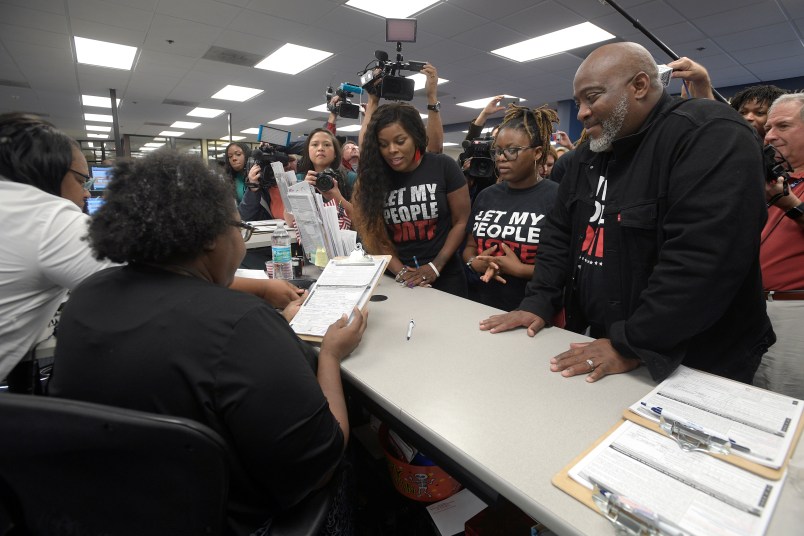The Florida House of Representatives on Wednesday passed a resolution to require former felons to pay potentially thousands of dollars in fines, fees, court costs and restitution (even restitution converted to a civil lien) in order to be allowed to vote, placing a huge asterisk on Amendment 4, the widely supported constitutional change that gives most felons their voting rights back after they “complete all terms of their sentence.”
The House version of Amendment 4 implementation is not yet law; the state Senate, which is also Republican-controlled, is considering a version that would still require the repayment of restitution, but not restitution converted to a civil lien, nor other expenses like fees, fines and court costs, the Orlando Sentinel noted Wednesday. The House version passed along party lines.
Many argue that the amendment text voters overwhelmingly approved was meant to be “self-implementing” or “self-executing” and therefore doesn’t require Republican legislative fine print.
In January, WLRN tallied potentially hundreds of millions of dollars that ex-felons would have to pay in order to vote. That would also be a boon for private debt collection agencies, the report noted, which some counties allow to tack on huge fees on top of the existing debts.
Florida has some of the most burdensome conviction-related expenses in the county, and advocates for felon re-enfranchisement have compared making the right to vote conditional upon paying them back to a modern poll tax.
“It’s blatantly unconstitutional as a poll tax,” Rep. Adam Hattersley (D-Riverview) said in March.
In addition to the discrepancy over fees, the Senate’s version also more narrowly defines which former felons would not be re-enfranchised due to the nature of their convictions: Amendment 4 excludes people “convicted of murder or a felony sexual offense.” The House version would include every felony sexual offense currently on the books, while the Senate’s version is more limited.
The legislative session ends May 3. Amendment 4 got more votes than any statewide elected official, including Sen. Rick Scott (R) and Gov. Ron DeSantis, in the 2018 elections. It replaced Florida’s comically arbitrary status quo for rights restoration.



